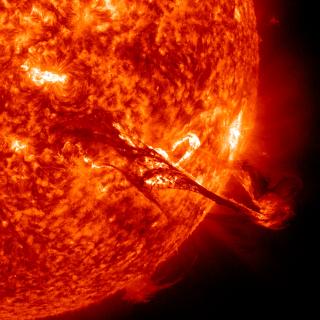Bibcode
Ballester, J. L.; Alexeev, Igor; Collados, Manuel; Downes, Turlough; Pfaff, Robert F.; Gilbert, Holly; Khodachenko, Maxim; Khomenko, E.; Shaikhislamov, Ildar F.; Soler, Roberto; Vázquez-Semadeni, Enrique; Zaqarashvili, Teimuraz
Bibliographical reference
Space Science Reviews, Volume 214, Issue 2, article id. #58, 149 pp.
Advertised on:
3
2018
Journal
Citations
131
Refereed citations
122
Description
Partially ionized plasmas are found across the Universe in many
different astrophysical environments. They constitute an essential
ingredient of the solar atmosphere, molecular clouds, planetary
ionospheres and protoplanetary disks, among other environments, and
display a richness of physical effects which are not present in fully
ionized plasmas. This review provides an overview of the physics of
partially ionized plasmas, including recent advances in different
astrophysical areas in which partial ionization plays a fundamental
role. We outline outstanding observational and theoretical questions and
discuss possible directions for future progress.
Related projects

Solar and Stellar Magnetism
Magnetic fields are at the base of star formation and stellar structure and evolution. When stars are born, magnetic fields brake the rotation during the collapse of the mollecular cloud. In the end of the life of a star, magnetic fields can play a key role in the form of the strong winds that lead to the last stages of stellar evolution. During
Tobías
Felipe García